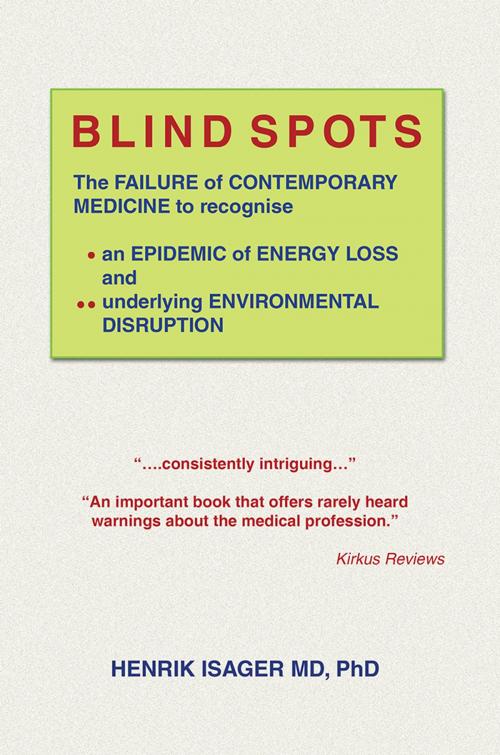Blind Spots
The Failure of Contemporary Medicine to Recognise * an Epidemic of Energy Loss and ** Underlying Environmental Disruption
Nonfiction, Science & Nature, Science, Religion & Spirituality, Philosophy, Health & Well Being, Health| Author: | Henrik Isager | ISBN: | 9781491875841 |
| Publisher: | AuthorHouse UK | Publication: | August 30, 2013 |
| Imprint: | AuthorHouse UK | Language: | English |
| Author: | Henrik Isager |
| ISBN: | 9781491875841 |
| Publisher: | AuthorHouse UK |
| Publication: | August 30, 2013 |
| Imprint: | AuthorHouse UK |
| Language: | English |
In spite of increasing use of advanced technology, the patient-orientated field of medical science, clinical medicine, has by and large retained the mechanistic-substantial perception of reality inherited from the scientific communities of the eighteenth and nineteenth centuries. In contrast, physics bade farewell to this view more than a century ago and now conceives the world primarily as a dynamic continuum of energy. Biochemists now regard structural (substantially orientated) and dynamic (energetically orientated) aspects of biochemistry as complementary and equally important. As seen from the perspective of the history of ideas, the anachronistic world view of clinical medicine, a view that can be characterised as dogmatic substantialism, places it in an outdated position compared with physics and biochemistry a position from which the existence of biologically relevant energetic phenomena cannot be recognised as such, simply because they are not supposed to exist. During the latest three decades, the epidemic of energy loss, which comprises the diagnostic entities ME/CFS, fibromyalgia, multiple chemical sensitivity, consequences of whiplash injury, and several other conditions, has affected Western societies increasingly and caused significant humanitarian, social, and economical problems. It is no exaggeration to state that the confrontation between conventional clinical medicine and the epidemic of energy loss has created confusion and, all too often, absurdities. Isager attempts a thorough analysis of this situation and its historical and ideological roots, emphasising epistemological problems problems concerned with how we know and how or why we do not know.
In spite of increasing use of advanced technology, the patient-orientated field of medical science, clinical medicine, has by and large retained the mechanistic-substantial perception of reality inherited from the scientific communities of the eighteenth and nineteenth centuries. In contrast, physics bade farewell to this view more than a century ago and now conceives the world primarily as a dynamic continuum of energy. Biochemists now regard structural (substantially orientated) and dynamic (energetically orientated) aspects of biochemistry as complementary and equally important. As seen from the perspective of the history of ideas, the anachronistic world view of clinical medicine, a view that can be characterised as dogmatic substantialism, places it in an outdated position compared with physics and biochemistry a position from which the existence of biologically relevant energetic phenomena cannot be recognised as such, simply because they are not supposed to exist. During the latest three decades, the epidemic of energy loss, which comprises the diagnostic entities ME/CFS, fibromyalgia, multiple chemical sensitivity, consequences of whiplash injury, and several other conditions, has affected Western societies increasingly and caused significant humanitarian, social, and economical problems. It is no exaggeration to state that the confrontation between conventional clinical medicine and the epidemic of energy loss has created confusion and, all too often, absurdities. Isager attempts a thorough analysis of this situation and its historical and ideological roots, emphasising epistemological problems problems concerned with how we know and how or why we do not know.















